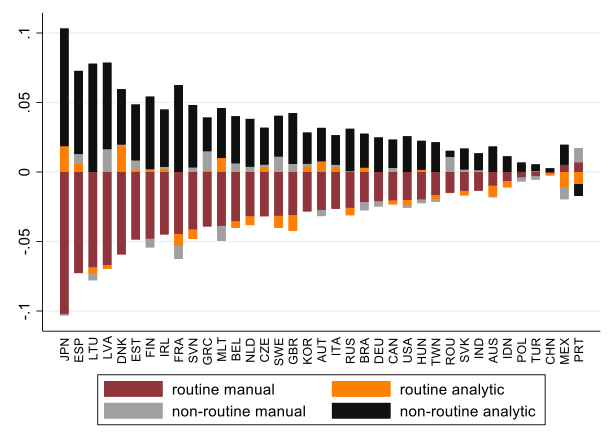
Covid-19 has shown that automation is and will increasingly be an essential part of our work. Among the main drivers are efficiency, productivity, health protection and safety.
In a 2018 article, Graetz and Michaels pointed out that robots contribute to productivity growth across all sectors in high-income countries and that adopting robots does not reduce employment. On the contrary, they can have a positive impact on the employment rate.
Robots seem particularly well suited for performing routine manual tasks, such as sealing, assembling and handling tools. But, through the upskilling of resources, new scenarios and opportunities open up in management roles, supervision and planning of routine activities performed by man.
Furthermore, it is fair to point out that companies adopt robots if it is technically feasible and the profit gains exceed the costs of purchasing and installing the robots. Therefore, improvements in robot capabilities are expected to translate into a broader employment response in high-income countries, where wages are higher than in emerging countries. Indeed, robot adoption reduces the employment share of routine manual jobs in high-income countries but not in emerging markets and transition economies.
In addition, some research shows that robots reduce the demand for manufacturing operations around the world. Still, related technological advances in robotics and artificial intelligence could involve performing more remote service tasks. Nowadays, for many of us, “remote” refers to activities performed at home but at a distance from the office. However, remotely could also mean beyond national borders.
Robotics and co-bots engineering are therefore demanding increased skills and capabilities for their design, manufacturing, operation and maintenance. This is another factual confirmation of the need for a comprehensive and modern approach to mechatronics education, both for students as well as for employees who need to be re-skilled. And this is exactly what the New Metro Project partially funded by the EU intends to do.
Source: https://voxeu.org/article/robots-replace-routine-tasks-performed-workers
